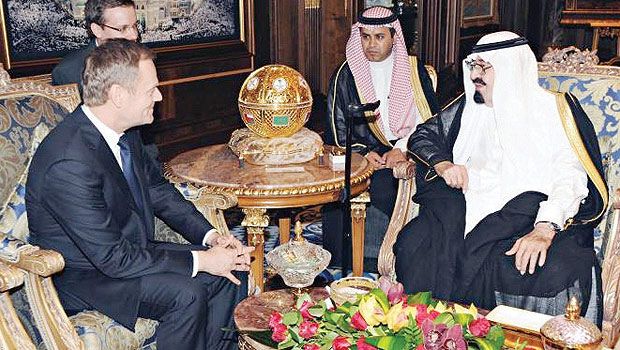
Riyadh, April 24: Custodian of the Two Holy Mosques King Abdullah held wide-ranging talks with Poland's Prime Minister Donald Tusk in Riyadh yesterday.
The talks focused on a range of key regional and international issues with special reference to the efforts required to building essential support for political and business initiatives to be launched by the two countries for strengthening overall relations.
King Abdullah lent his support to boosting political and economic cooperation between the Kingdom and Poland, said Saudi and Polish sources after the talks.
During the meeting, King Abdullah and the Polish premier discussed "several aspects of cooperation between the two friendly countries."
"The summit-level meeting was important because this is the first visit by a head of a Polish government since Poland and Saudi Arabia established diplomatic relations," said a diplomatic source.
Saudi Arabia is a key-trading partner among Arab countries, producing a quarter of the region’s GDP annually, he added.
"Poland has evinced keen interest in boosting its political and commercial ties with Riyadh further," he noted. The talks were attended by Crown Prince Naif, deputy premier and minister of interior; Prince Salman, minister of defense; Prince Saud Al-Faisal, minister of foreign affairs; Prince Muqrin, chief of General Intelligence; and Prince Miteb bin Abdullah, minister of state and Commander of the National Guard.
Tusk also met yesterday with Riyadh Gov. Prince Sattam. The Polish premier and his accompanying delegation attended a dinner hosted by Prince Saud in his honor.




Comments
Add new comment